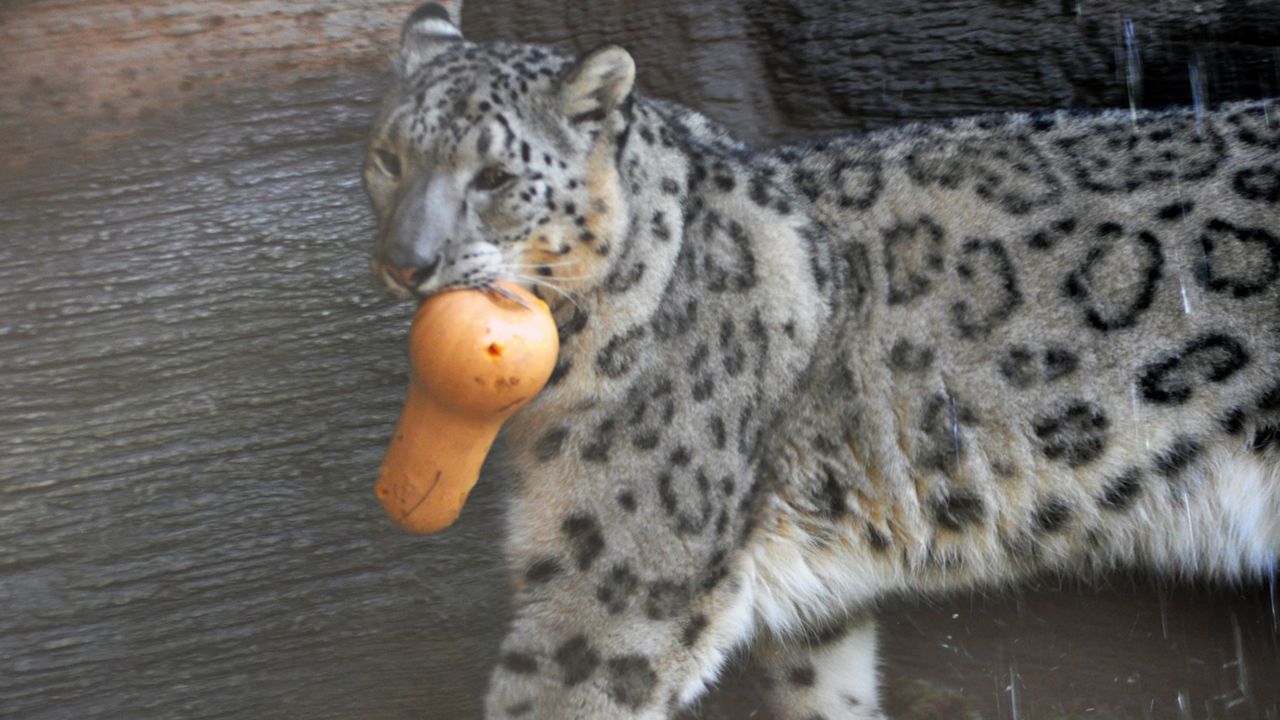LOUISVILLE, Ky. — If you've visited the Louisville Zoo in the past month, you may have noticed the absence of its snow leopards. After a month off to recover from SARS-CoV-2, the virus that causes COVID-19 in humans, NeeCee, Kimti, and Meru have now made their return.
Five-year-old NeeCee was the first to test positive for SARS-CoV-2 in December. Kimti and Meru, the two male snow leopards, subsequently tested positive. No other animals at the zoo are known to have contracted the virus.
Ever since the diagnoses, fecal samples were collected from all three snow leopards and tested for any presence of the virus. Symptoms were mild and went away quickly, but the virus was shown to be present a few weeks longer, according to Senior Staff Veterinarian Dr. Zoli Gyimesi.
"This is typical of how the virus has behaved in other big cats. We are happy to end their quarantine and get them back to enjoying the exhibit," Gyimesi said.
In a press release, the Louisville Zoo said all of its staff are following COVID-19 safety protocols recommended by the Centers for Disease Control and Prevention (CDC) and Louisville Metro Department of Public Health and Wellness. All Zoo staff go through a detailed health screening before starting their workday, wear appropriate PPE based on their job, and are tested if symptoms of COVID-19 arise.
"The Zoo continues to follow all necessary safety precautions as issued by the CDC and Metro Public Health and Wellness," the release said.
NeeCee's was the first confirmed case of SARS-CoV-2 infection in a snow leopard. The discovery contributed to the growing knowledge about the novel coronavirus and transmission between people and animals.
The USDA keeps a list of confirmed cases in animals, and in Kentucky to date, there has been one confirmed case of SARS-CoV-2 in a domestic cat. For more information on how to prevent COVID-19 in people and animals, visit the CDC webpage.



